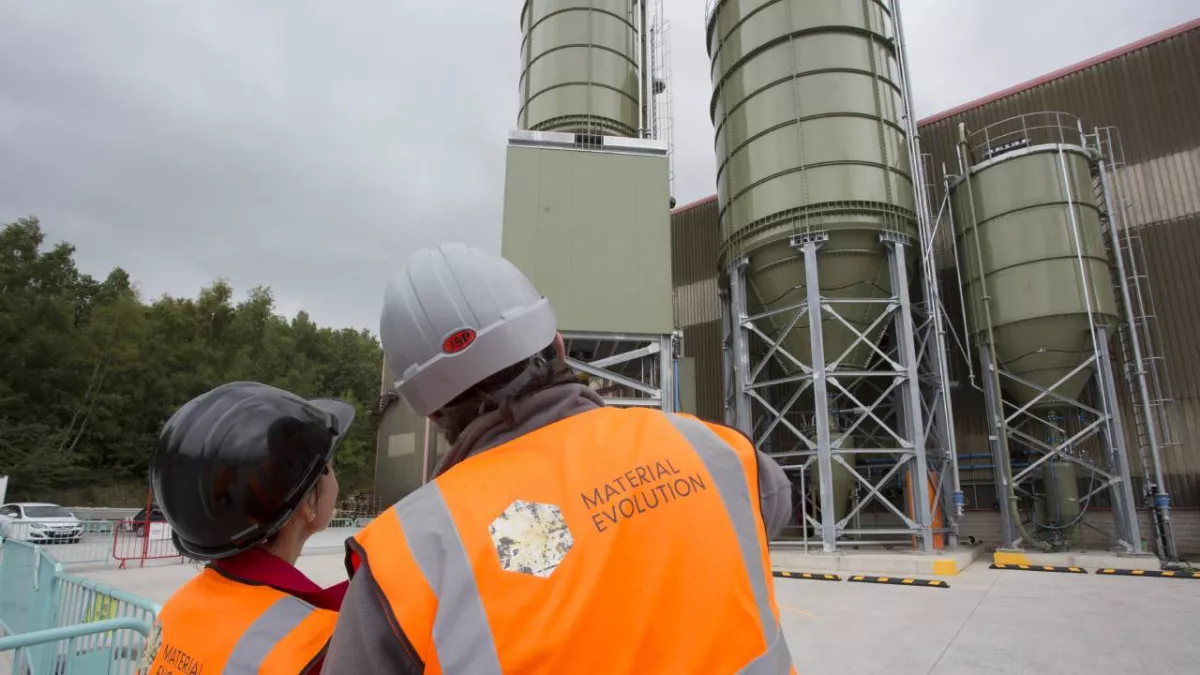Cement production's dirty problem that you didn't know about
No other substance in the world is being used more than cement, with the only exception being water. Over four billion tonnes are being poured into building sites every year, which accounts for 7.5 per cent of all global carbon emissions - over twice that of the aviation industry. The shocking revelation that the global construction industry does not seem to be in a rush to find ways to combat it’s heavy toll on the environment prompted a UK-based start-up to develop a low-carbon cement production method of their own.
Founded in 2020 by Liz Gilligan and Sam Clark, Material Evolution's cement production reduces emissions by 85% compared to traditional Portland cement, the dominant type worldwide. Britain's The Times publication has written a profile on the start-up, which managed to raise £15 million (approx. $18.8 million) and build a production facility in Wrexham in the short time, capable of producing 120,000 tonnes annually with plans to scale up in the near future.
Traditional cement production is carbon-intensive, not only because of the fossil fuels required to heat up thermally insulated chambers, called kilns, to 1,400°C to mix the required ingredients together but also because of its release of CO₂ from limestone during its breakdown into calcium oxide, a key ingredient. Material Evolution’s innovative process, alkali fusion, avoids both issues. Instead of limestone, it uses slag—a byproduct of blast furnaces—and mixes it with alkali chemicals in a reactor. This low-energy process produces a cement powder that behaves like Portland cement when mixed with water, emitting only minimal carbon from energy consumption and supply chain activities.
Material Evolution’s cement complies with new low-carbon regulatory standards set by the Institute of Civil Engineers, making it suitable for construction projects. The company also plans to expand its raw material base to include other industrial waste products, such as mine tailings, reducing the need for virgin materials.

Despite these advancements, challenges remain. The Wrexham facility, while the largest low-carbon cement plant in the UK, produces only a fraction of the 15 million tonnes of cement consumed annually in Britain. Material Evolution plans to scale through partnerships with some of the world's largest building materials companies like Heidelberg, Cemex, and Tarmac, rather than competing directly against them. Co-founder Gilligan predicts that the industry, driven by net-zero targets and carbon tax concerns, will likely abandon traditional cement plants in Europe in favor of low-carbon alternatives.
Cost is another hurdle. While Material Evolution’s cement is cheaper than low-carbon cement made using carbon capture technology (priced at £450 per tonne, approx. $565), it remains significantly costlier than Portland cement (£130 per tonne, approx. $160). However, Gilligan anticipates price parity within five years as production scales up. Additionally, demand for sustainable building materials is expected to grow, driven by policies like the UK government’s Future Homes Standard, which takes effect in 2024.
Material Evolution’s approach represents a significant step toward decarbonizing one of the world’s most polluting industries. By leveraging waste products, avoiding limestone, and reducing energy use, the company offers a model for sustainable cement production. However, its ultimate success depends on scaling operations, securing industry partnerships, and aligning with market demand for low-carbon construction solutions.
By Nazrin Sadigova








